Kimchi, the traditional Korean side dish, is more than just a dish – it's a cultural icon, a symbol of national pride and identity. Beyond its deliciousness, Kimchi embodies a sense of community, family, and shared heritage. Kimchi holds a special place in the hearts of Koreans, and its importance is celebrated every year on November 22nd as Kimchi Day. Kimjang, the process of making Kimchi inscribed in 2013 on the representative list of UNESCO’s Intangible Cultural Heritage of Humanity.
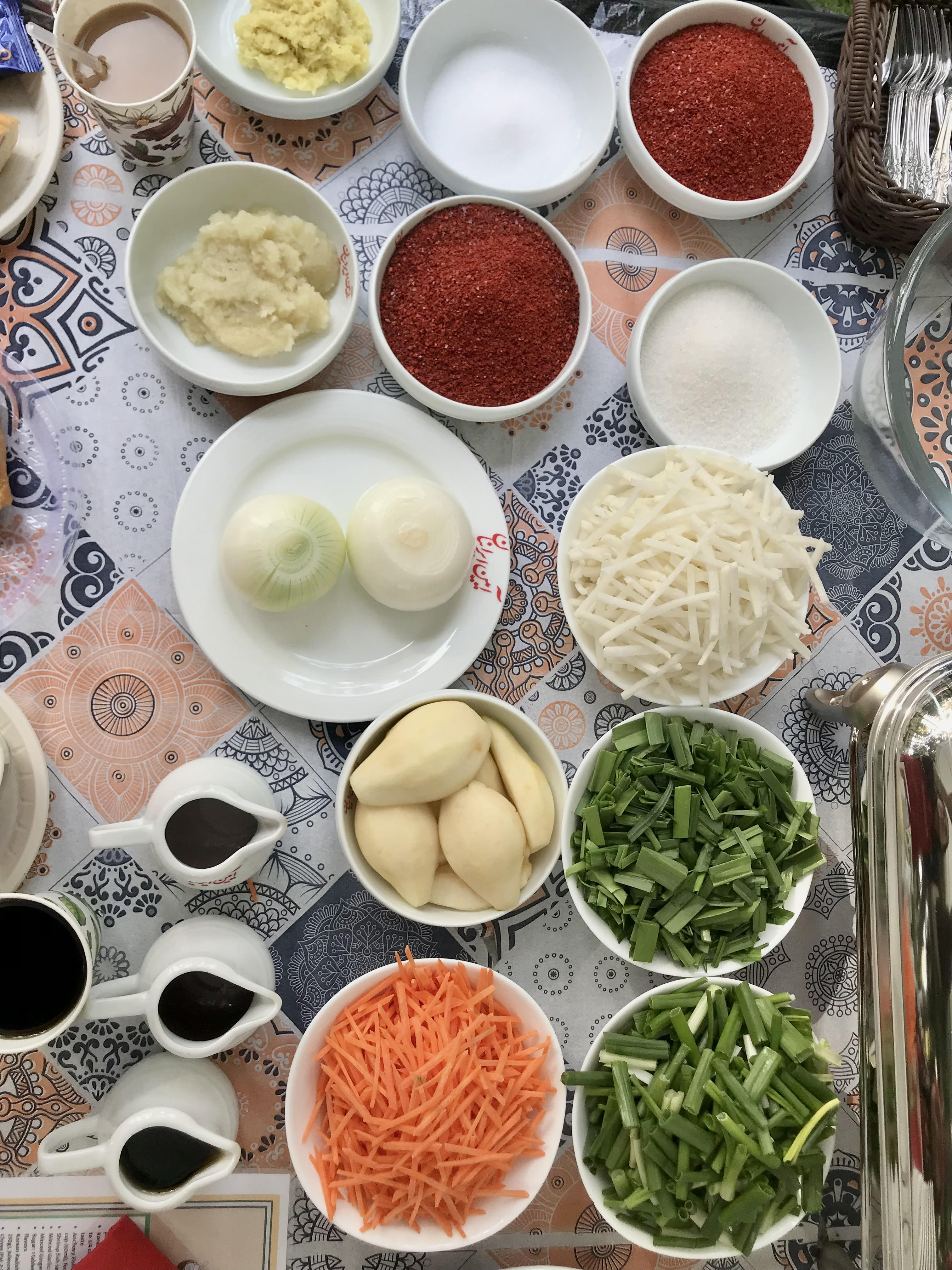
Materials we need to make Kimchi
Recently, we were fortunate to be invited to Kimchi Day event, held on October 31 at the residence of the Ambassador of the Republic of Korea in Tehran. It was an exciting opportunity to experience this famous dish and learn more about it. As we entered the residence, we were greeted with the warm aroma of Korean coffee and a delightful spread of Korean snacks. This welcoming ambiance set the stage for a cultural exchange adventure.
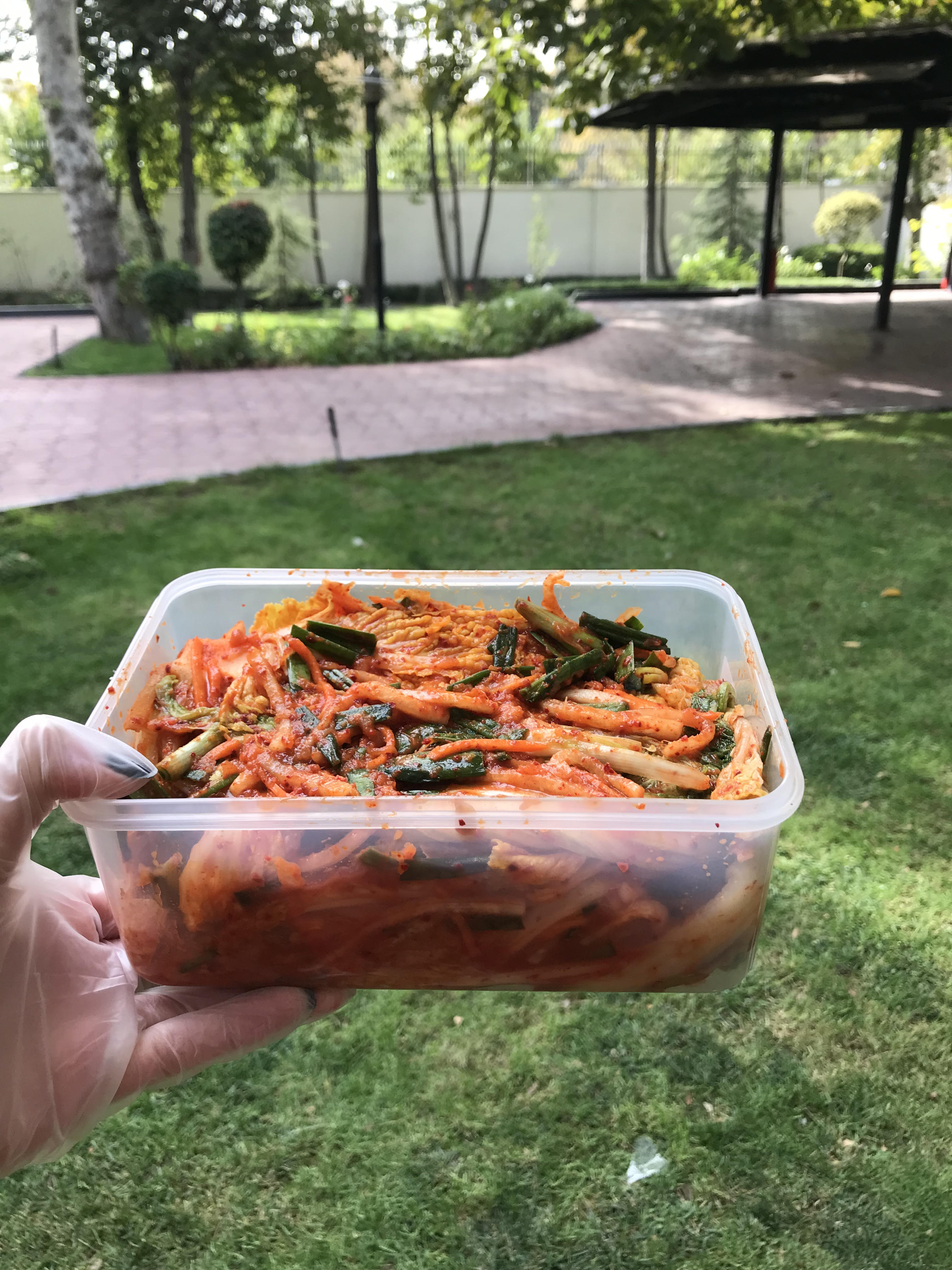
The Kimchi made by me
Mr. Kim, the Cultural Attaché of the Korean Embassy in Tehran, took the stage and began his engaging speech. He provided a fascinating introduction to kimchi, tracing its history and highlighting its importance in Korean culture. Mr. Kim emphasized that kimchi is a symbol of family and community, often a focal point of gatherings where families come together to prepare and enjoy their food.
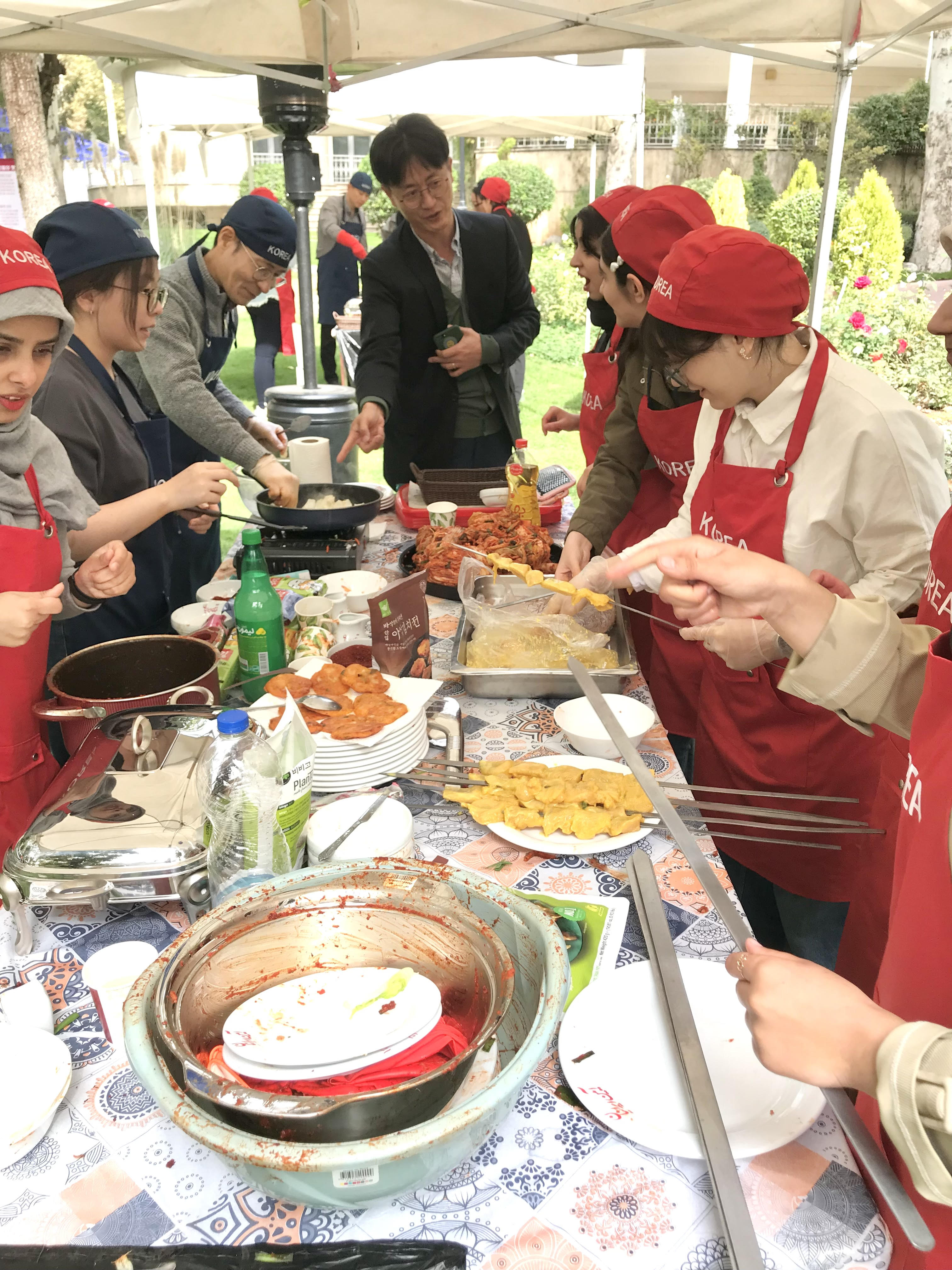
Korean members sharing their knowledge with their group
The highlight of the event was the hands-on Kimchi-Making Workshop. We were divided into groups, each assigned the task of preparing a delicious batch of kimchi following a traditional recipe. While the Iranian participants focused on mastering the art of kimchi making, the Korean members of the groups prepared two classic Iranian dishes: Joojeh Kebab (chicken kebab) and Koobideh Kebab (ground beef kebab).
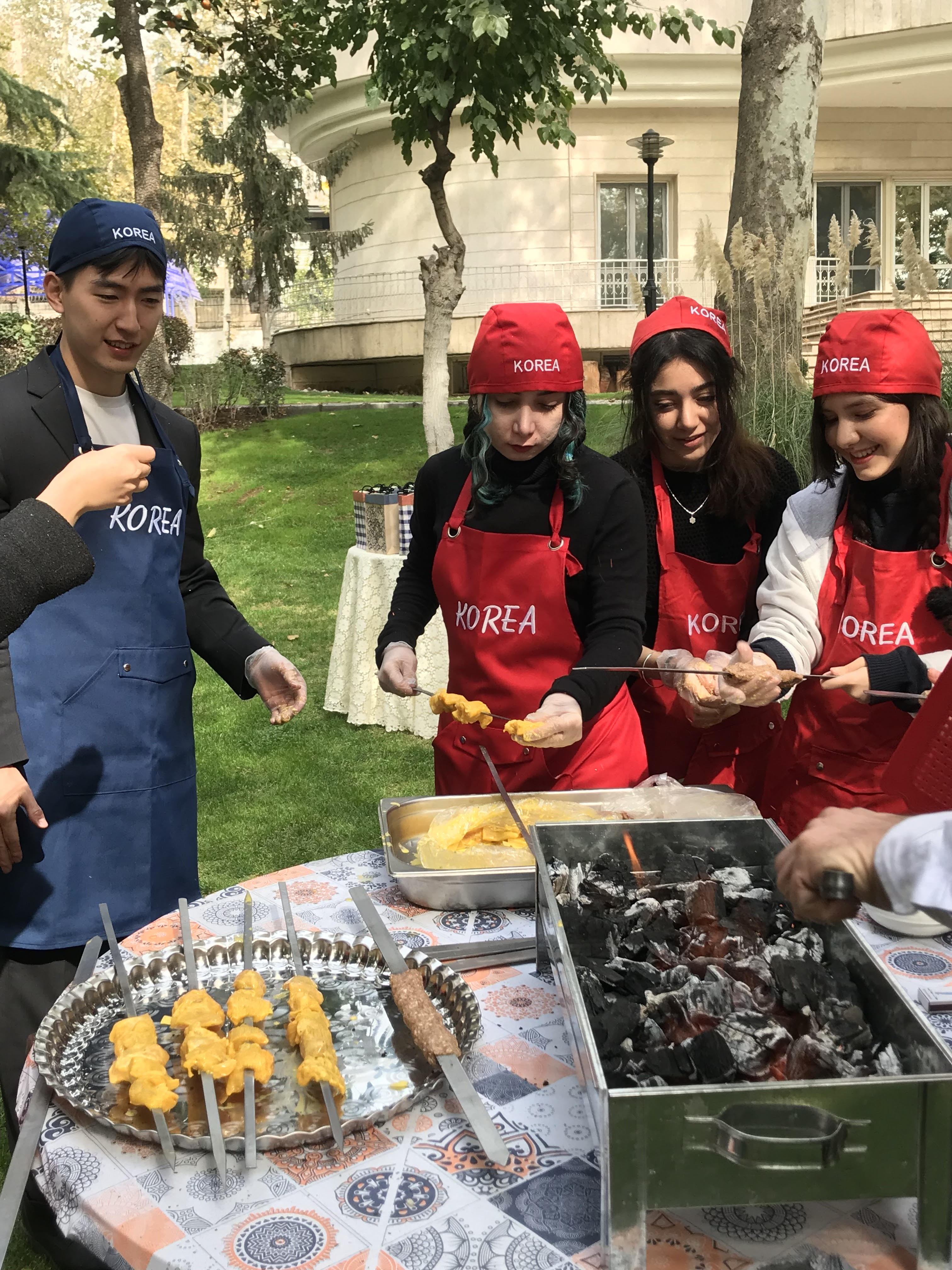
Korean members making Persian food while Iranian members make Kimchi
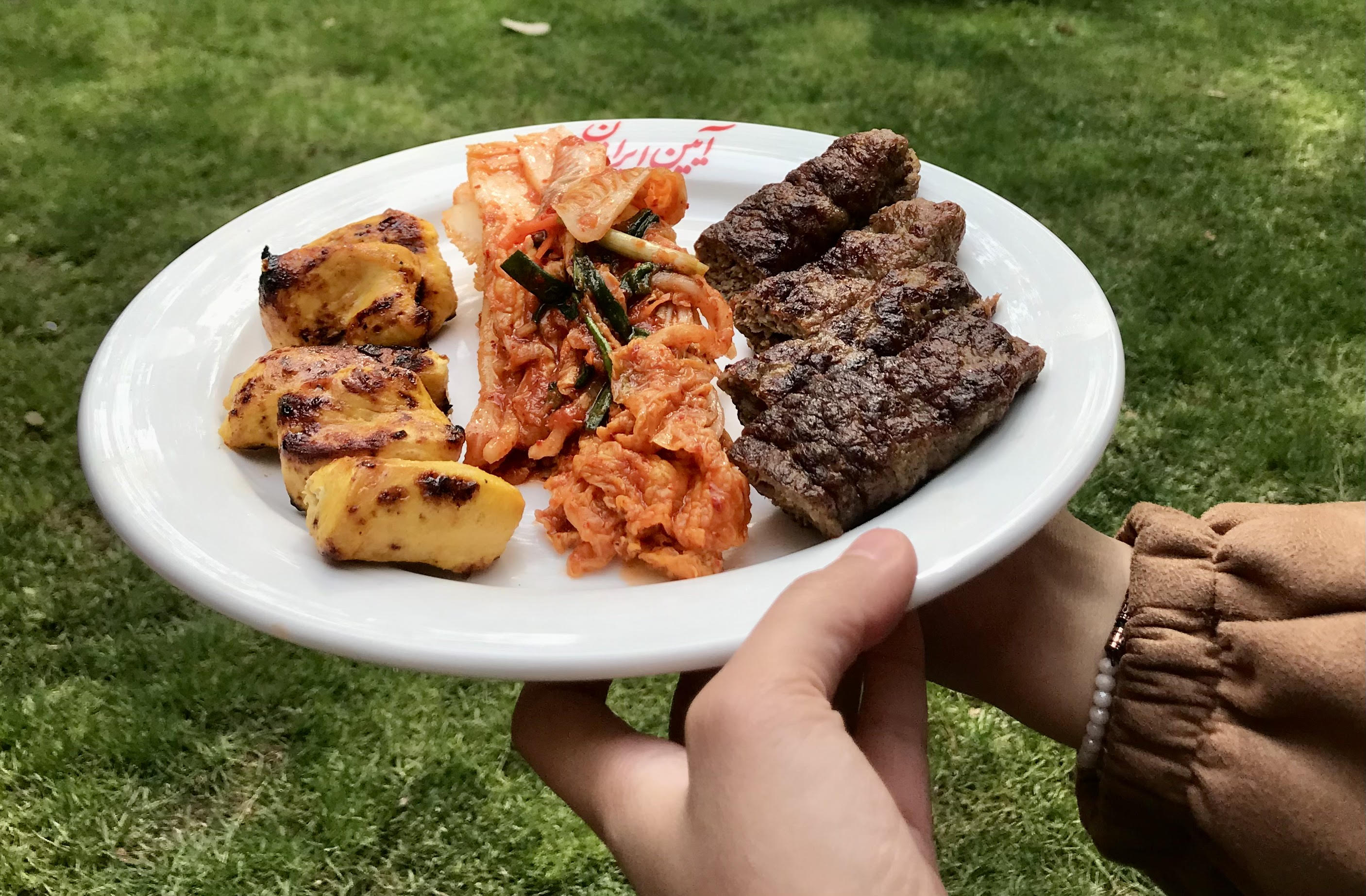
Our Kimchi, Joojeh and Koobideh
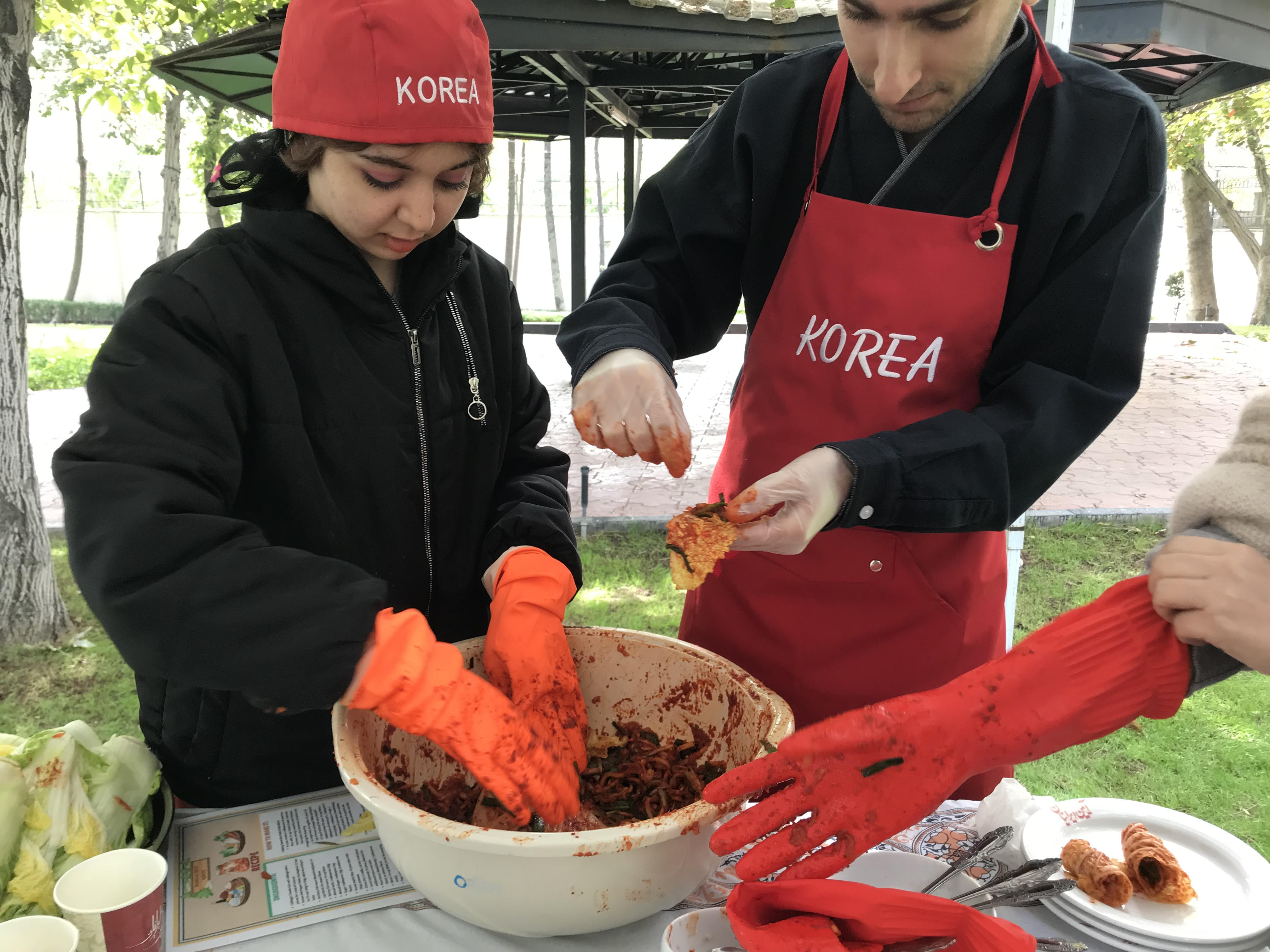
Participants making Kimchi
This cultural exchange, a fusion of Korean and Iranian culinary traditions, created a delightful atmosphere of shared learning and mutual respect. We also fried Kimchi-jeon(kimchi pancake) and Mandu(dumplings) to enjoy the taste of Korean cuisine deeply.
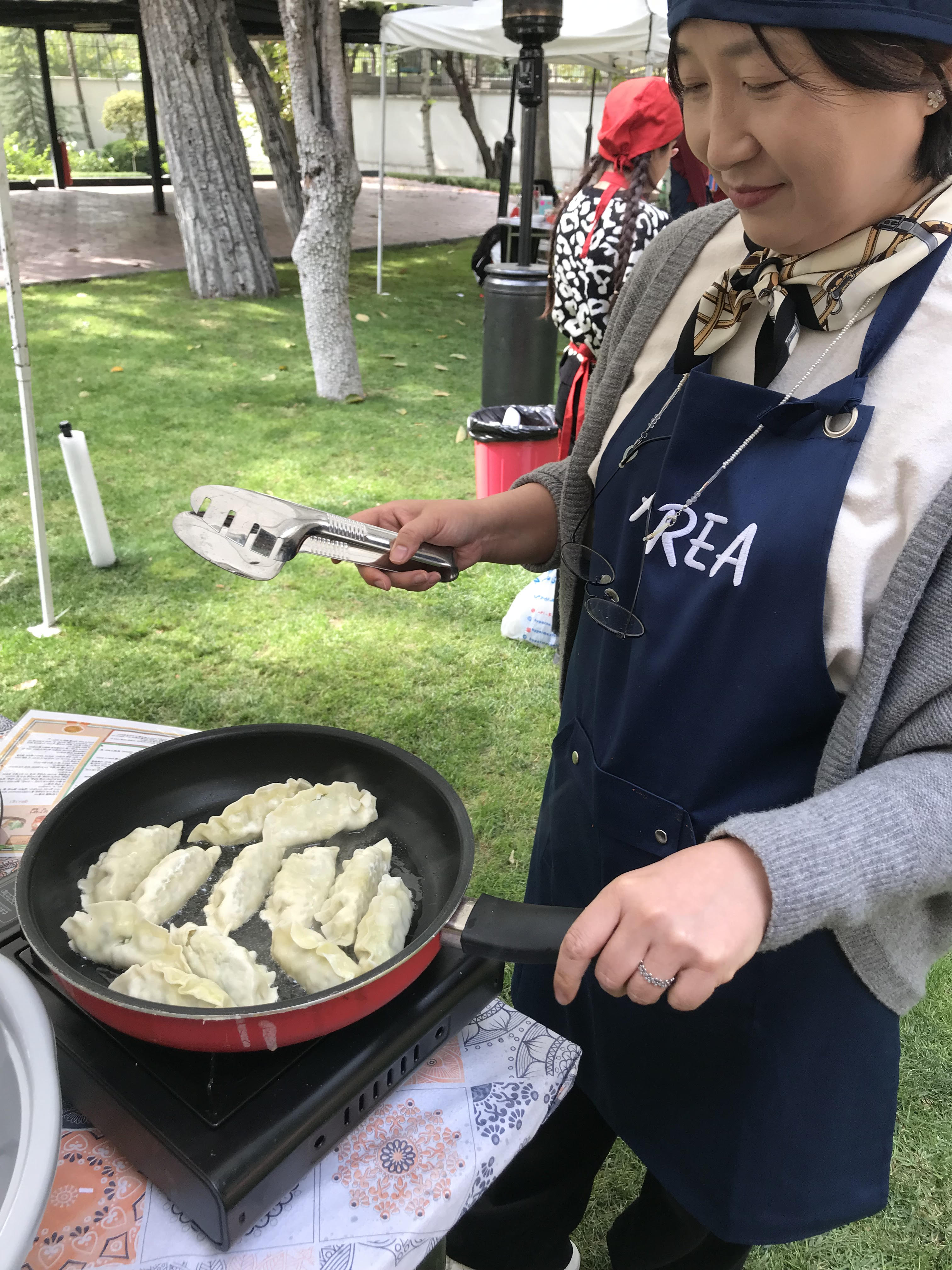
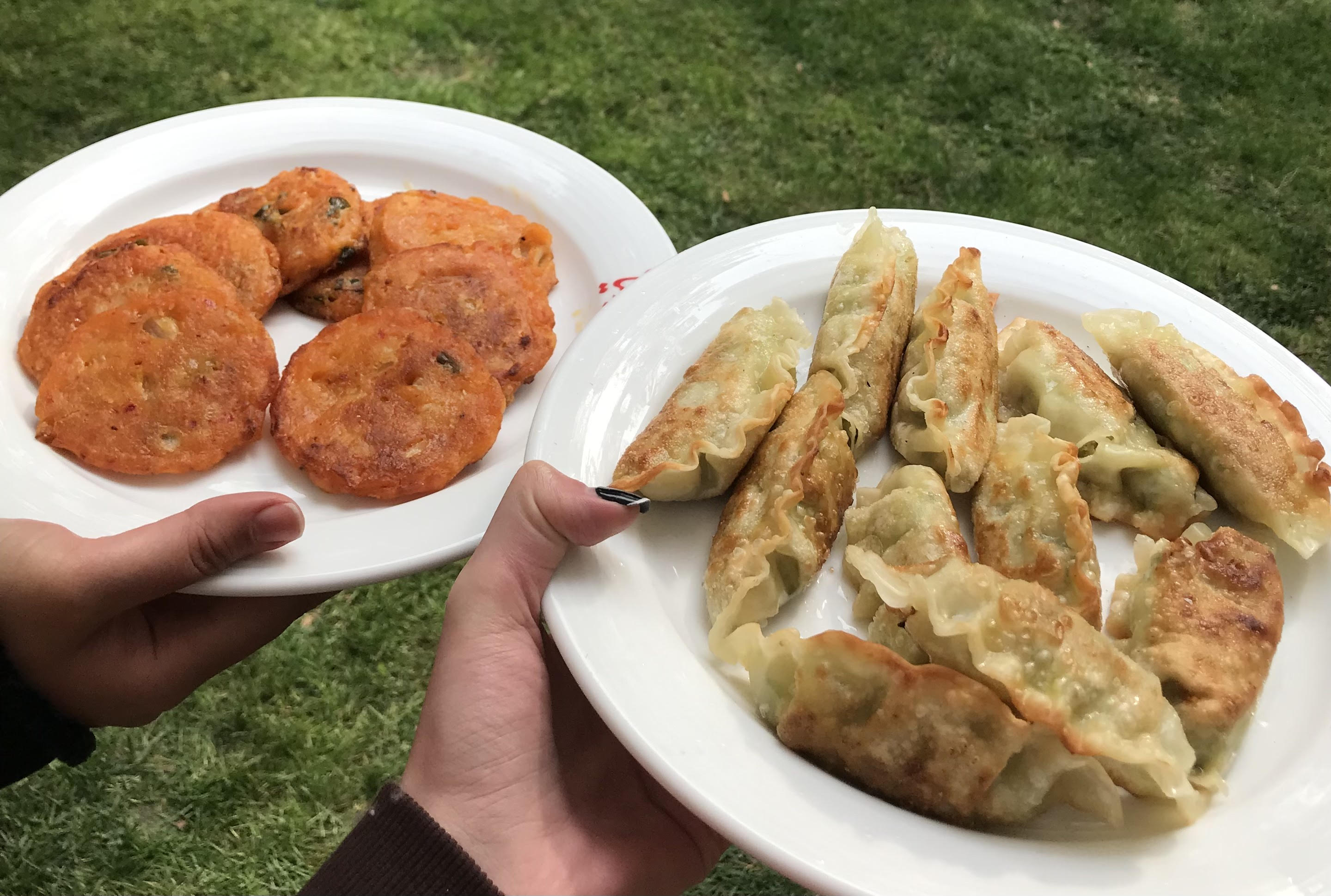
Kimchi-Jeon and Mandu
Once the groups had successfully prepared their dishes, a Korean and an Iranian member from each group presented their creations to a Korean jury. The judges tasted each Kimchi, Joojeh Kebab, and Koobideh Kebab, meticulously evaluating the flavors, textures, and overall presentation. The competition was fierce, but ultimately, three groups were crowned the winners – those who crafted the most delicious kimchi, Koobideh, and Joojeh Kebab. Mr. Kim, with a generous smile, presented each winning group with a special prize. To add to the excitement, Mr. Kim also conducted a Kimchi quiz. Participants who answered correctly received prizes, showcasing their knowledge of this iconic Korean food.
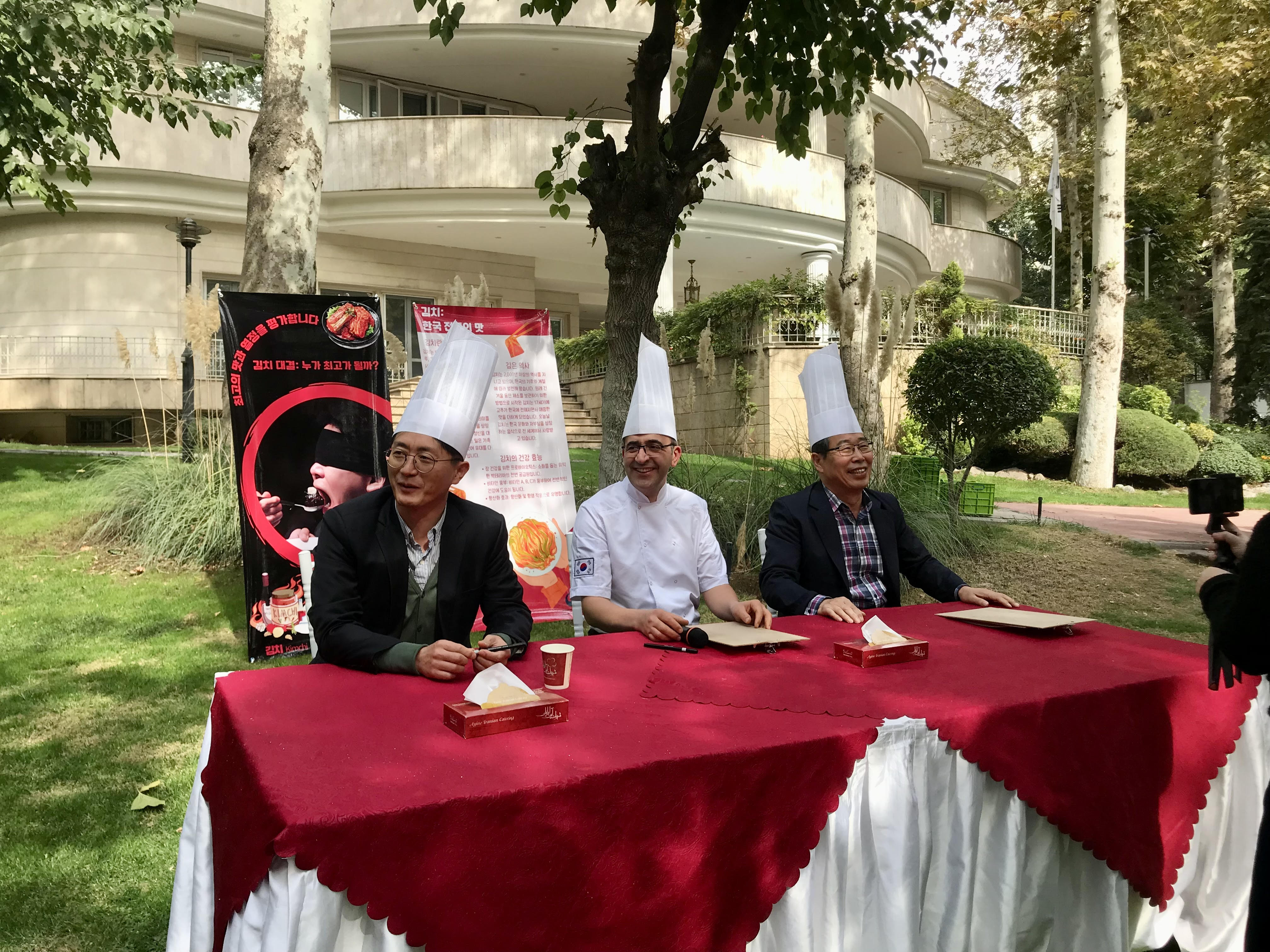
The jury announcing the winners

Prizes of the the winners
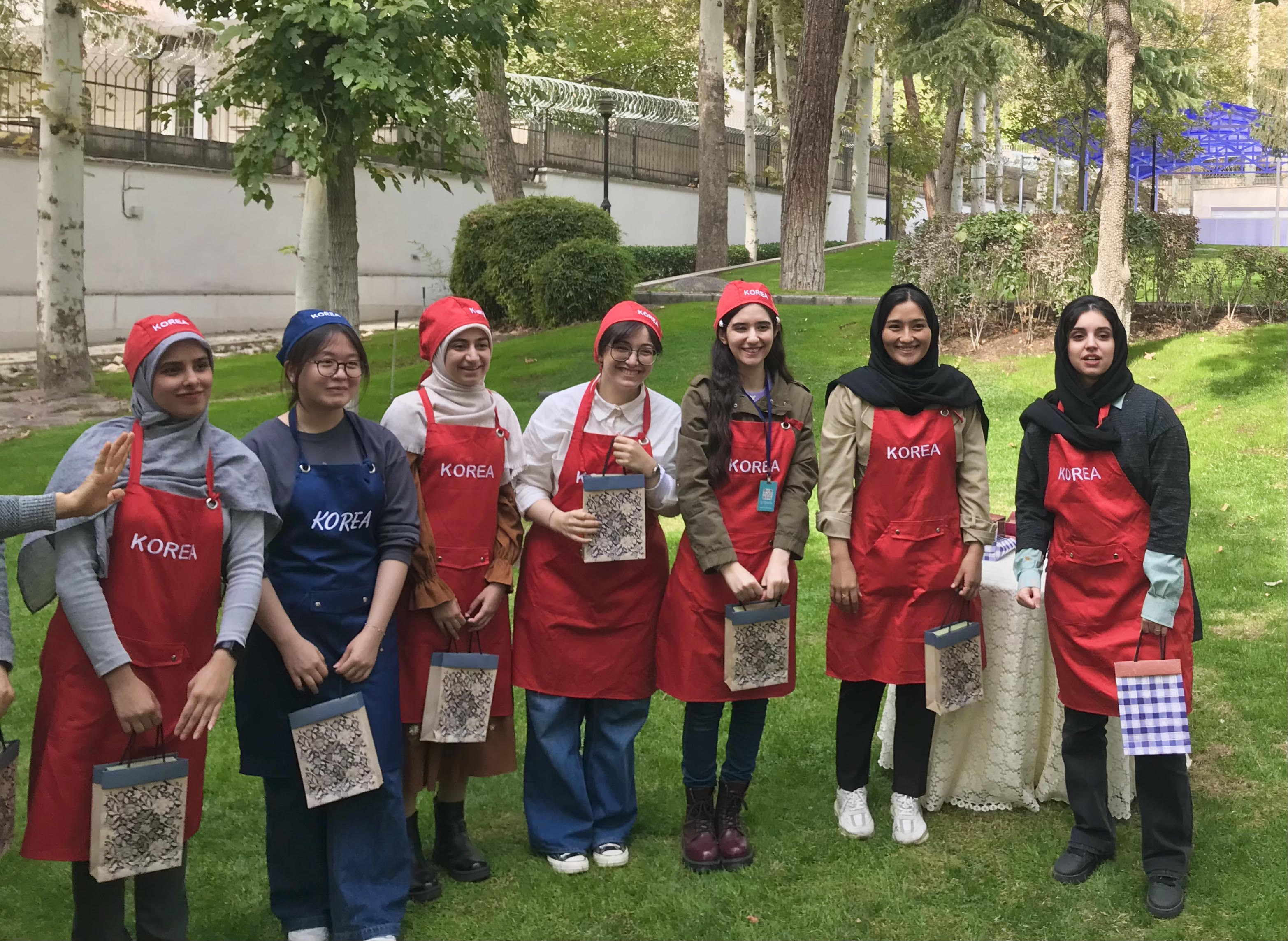
Winners of the 1st place receiving prizes
As the event drew to a close, everyone received Kimchi-themed souvenirs, a tangible reminder of the day's cultural experience. We shared final smiles, captured memories through photographs, and departed with a renewed appreciation for Kimchi's place in Korean culture. The Kimchi Day event was more than just a culinary experience; it was a celebration of shared values, cultural exchange, and the unifying power of food. It underscored the enduring legacy of Kimchi, a food that transcends generations and connects people across cultures.
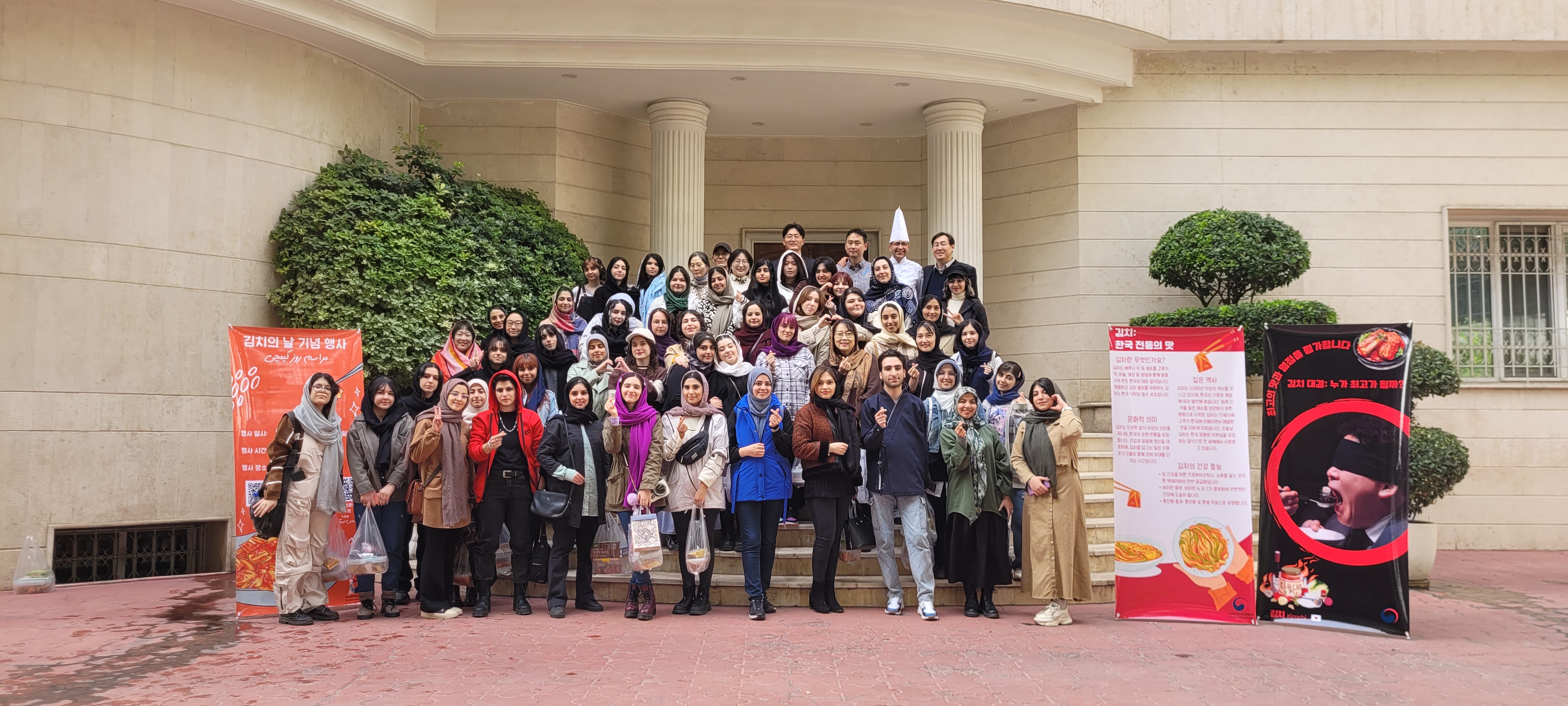
keeping memories of Kimchi day in a photograph
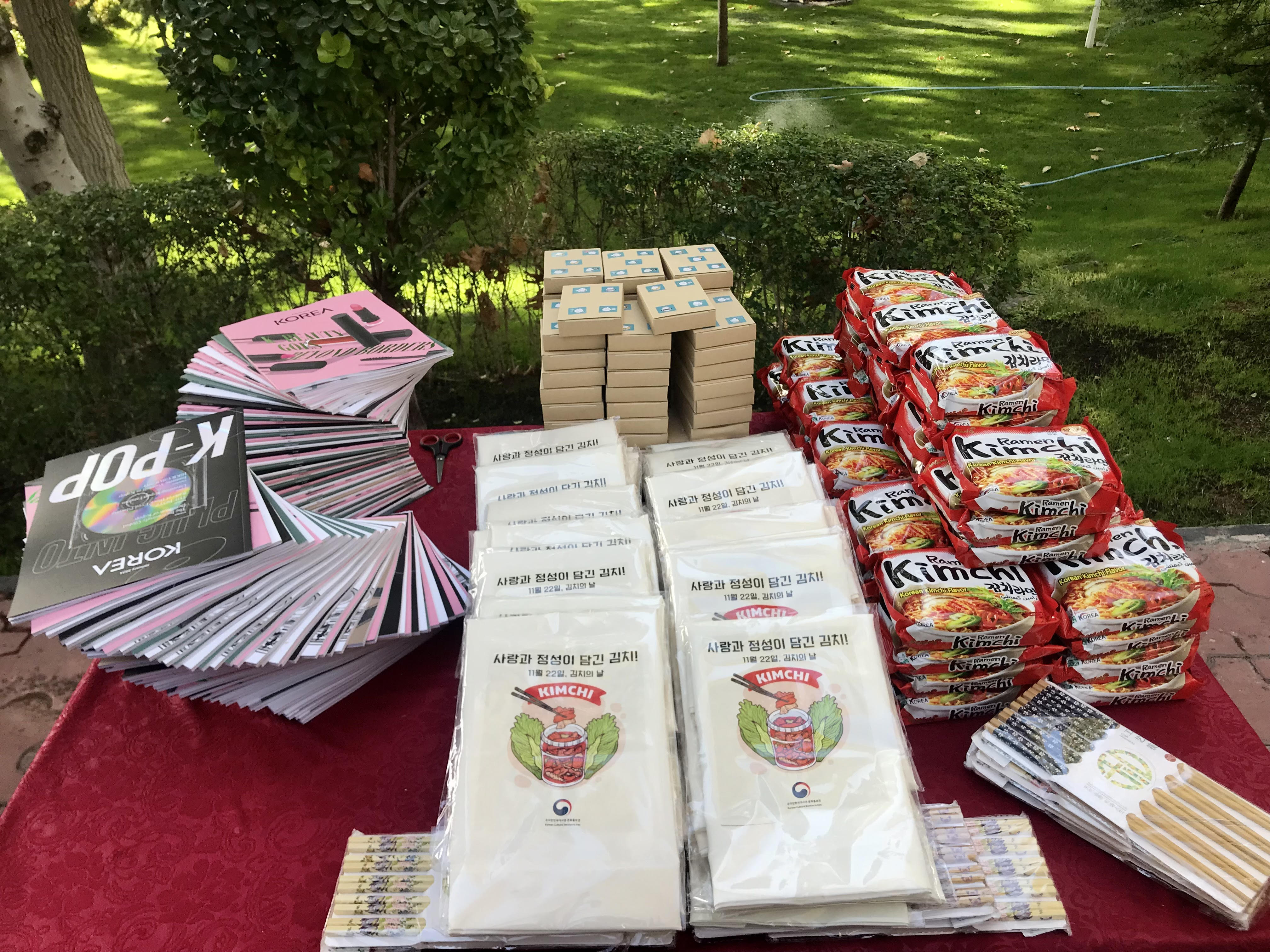
Kimchi-themed souvenirs
How about this article?
- Like59
- Support2
- Amazing2
- Sad0
- Curious0
- Insightful0


